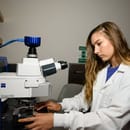Winter tends to be the season where it seems like we all lose a little bit of the pep in our step and and daily tasks seem to be a bit harder to complete. These feelings are pretty normal; it’s colder out, we have less sunlight, we tend not to go outside as much, and we can’t do any ofour favorite spring and summer activities. But if you’re noticing a huge shift in your mood, lack of motivation or apathy towards a lot of things that you used to get excited about, there might be a deeper underlying reason. You might be experiencing SAD or Seasonal Affective Disorder.
Seasonal Affective Disorder is a type of seasonal depression that happens around the sametime every year, usually in the fall and winter months. According to the Mayo Clinic, SAD is characterized by a lack of motivation and decreased energy, feeling hopeless, weight or appetite changes, agitation, restlessness, sleep changes, reduced interest in activities, difficulty concentrating, and suicidal thoughts. Before I go on, if you’re experiencing suicidal thoughts, I urge you to reach out and get help. The National Suicide Hotline phone number is 1-800-273-TALK, and they’re open 24/7. CAPS on campus is also a great resource to provide you with a counselor or therapist that you can talk to.
You might be wondering, “why does SAD happen?” Well, there’s not a definitive cause that we know of yet, but we believe it may be linked to a decrease of sunlight during the fall and winter months which can lead to decreased serotonin production in the brain. Serotonin is the “feel-good” neurotransmitter our body makes, and it is partially responsible for making us feel happy. A shift in the body’s melatonin level, which promotes sleep, may also contribute to SAD onset. SAD is pretty prevalent in college students, and you’re also at an increased risk for SAD if you’ve moved from a very sunny climate to a more rainy, cold one. Luckily, as we’re in a pretty mild climate, this isn’t too big of a contributing factor where we live. If you’re reading this and I’ve just described everything you’ve been feeling lately, you’ll be happy to know that there are a few treatments for SAD that can help you push through until it’s warm and sunny again. The primary treatment is light therapy, where you sit in front of a lightbox to simulate sunlight for a prescribed amount of time per day. Some doctor’s offices will loan a lightbox to you, but they can also be purchased/rented online and are easily available through Amazon. Antidepressants can also be prescribed, as well as psychotherapy, to help patients suffering from SAD. Before you begin any treatment, it’s important to consult your doctor or therapist. CAPS or the therapists at Redfern are great resources to see how to start addressing SAD.
As much as it sucks to deal with SAD, knowing what makes you feel so down in the dumps is the first step in feeling better, and you’re definitely not alone in this.



